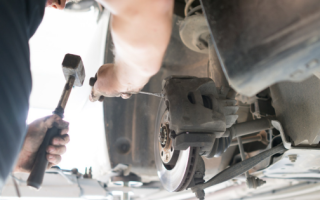There’s something electric about bidding at a car auction. Fast-paced. Competitive. Unpredictable. One moment you’re calmly observing, the next you’re in the heat of it, trying to outbid someone for a vehicle you just have to have.
But if you’re not careful, that adrenaline rush can cost you big time. That’s why knowing how to save money at a car auction is just as important as knowing how to spend it.
Whether you’re eyeing an SUV, sedan, or salvage vehicle, a public auto auction can be a goldmine of deals if you approach it with a clear strategy.
Ready to make smart moves instead of costly mistakes? Let’s get into it.
How Online Car Auctions Work
Let’s start with the basics. Traditional in-person auctions still exist, but more and more buyers are turning to online platforms. Why? Convenience. More choices. And often, better prices.
In an online car auction:
- You register on a platform (some require a fee).
- You browse thousands of listings, filtering by make, model, year, or damage.
- Each car typically has a time-based bidding system. The highest bidder wins when time runs out.
- Some listings are “buy now” options with fixed prices.
Online car auctions can be open to the public or exclusive to dealers. Public auctions give everyday buyers access to wholesale inventory that used to be off-limits.
But don’t just show up and click “bid.” This isn’t eBay. You need a plan.
Ways You Can Save Money At Car Auctions
1.Choose the Right Auction Type for Your Goals
Not all auctions are created equal.
- Public auctions are open to everyone. Great for individual buyers.
- Dealer-only auctions require a license. Typically, they offer more inventory.
- Salvage auctions feature vehicles with damage. Lower prices, but higher risk.
- Clean title auctions list vehicles without major insurance claims or damage history.
Why it matters: A buyer looking for a daily driver should probably avoid heavily damaged salvage listings. Meanwhile, a flipper looking to repair and resell might prefer them. Pick based on what you need, not just what’s available.
2.Set a Budget (and Actually Stick to It)
This one’s non-negotiable.
Decide exactly how much you’re willing to spend. Then subtract:
- Expected repairs
- Auction fees
- Delivery costs
- Registration and taxes
What’s left is your max bid. Stick to it. No exceptions.
It’s easy to get caught in a bidding war. But overbidding kills your savings. Treat your budget like a seatbelt. It keeps you from flying headfirst into regret.
3.Do Your Homework Before Bidding
Never bid blind.
Each listing comes with details—mileage, title status, damage type, and photos. Review everything. Then check:
- The current market value of that vehicle.
- Common repair costs for any known issues.
- User reviews on that model (Is it reliable? Costly to fix?)
The goal? Know what the car is worth before you try to win it. Guessing is how people overspend.
4.Check the Vehicle History Report (If Available)
Some platforms offer VIN reports for a fee. Others include them for free. Either way, it’s worth it.
These reports reveal:
- Prior accidents
- Service records
- Title status (clean, salvage, rebuilt)
- Odometer discrepancies
One skipped report can cost you thousands. If there’s no VIN info available? Proceed with extra caution.
5.Watch for Hidden Fees and Buyer Premiums
You’re not just paying for the car.
Most auctions charge:
- A buyer’s premium (percentage of the sale price)
- Registration fees
- Documentation or processing fees
- Late payment penalties
These extras add up fast. So read the fine print before you bid. A car listed at $5,000 could really cost $5,800 once it’s all said and done.
6.Bid Smarter, Not Harder
Winning isn’t everything. Winning cheaply is.
Here are a few tips:
- Don’t bid too early. Let others reveal their hand first.
- Avoid “bidding wars.” If someone keeps outbidding you, move on.
- Look for listings ending during off-hours. Fewer bidders = better deals.
- Use proxy bidding when available. This lets you set a max bid and walk away. The system auto-bids for you, only as needed.
Bottom line: Keep your emotions out of it. This is a financial decision, not a game show.
7.Inspect What You Can (And Don’t Skip the Fine Print)
Not all auctions allow inspections. But if you’re buying in person—or the auction offers a virtual inspection report—take full advantage.
Things to check:
- Photos from every angle (especially undercarriage and engine bay)
- Seller comments about the condition
- Notes about missing parts or cosmetic damage
Also, read the listing terms. Some sales are as-is. Others may offer return windows or arbitration for misrepresented vehicles.
Don’t skip this stuff. One missed sentence could mean you’re stuck with a car that won’t start—or worse.
8.Don’t Blow Your Savings on Delivery or Repairs
Let’s say you scored a sweet deal on a $3,000 sedan. Great! But then:
- You pay $950 for long-distance delivery.
- It needs $1,200 in repairs you didn’t expect.
- You still need to register and insure it.
Just like that, your deal’s gone.
What to do instead:
- Choose vehicles located near you to lower shipping costs.
- Get repair estimates before bidding, based on listed issues.
- Factor in all extra costs—up front.
Saving money doesn’t end with the winning bid. It ends when the car’s in your driveway, ready to drive, without surprise bills.
Plan Smart, Win Big
Car auctions can absolutely save you money—if you play the game wisely.
Remember the essentials:
- Pick the auction type that fits your needs.
- Budget for more than just the bid.
- Research like your wallet depends on it. (Because it does.)
- Know when to walk away.
The most successful auction buyers aren’t the ones with the biggest budgets. They’re the ones with the best strategy.
And if you’re considering your first public auto auction, now you know how to show up prepared.
Want a deal that doesn’t drain your savings? Stick to the plan. Save smart. Spend smarter. And always read the fine print.






Comments